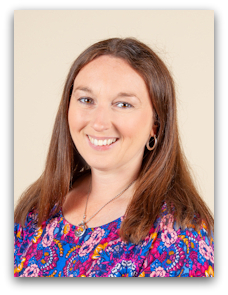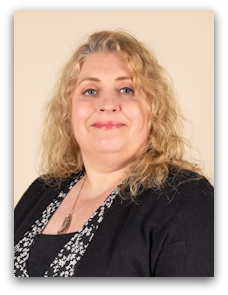F1 (nursery) 2 year olds
Welcome to Nursery
|
|
|
|
|
Mr Smith (F1 Teacher) |
Mrs Dixon (F1 PPA Cover Teacher) |
Mrs Franks (F1 Teaching assistant) |
|
|
||
| (2-Year-Old Nursery Assistant) | (2-Year-Old Nursery Assistant) |
For more information about Mr Smith and Mrs Dixon, please see their 'Meet the Teacher' sheets at the bottom of this page.
Our EYFS journey at Holgate Primary School begins with our 2-Year-Old provision. During this stage of learning, our 2-year-olds follow a child-centred approach inline with Development Matters and the EYFS Statutory Framework 2025. The staff plan follow our EYFS curriculum and also provide activities based around the children’s interests.
We don't insist that children in our 2 year old children wear school uniform as this is a relaxed, fun place to be, and we want children to feel comfortable. The nature of our Early Years provision is active and, at times, messy, so please ensure that children are dressed appropriately and know that it is okay for them to involve themselves in messy play. We will advise you if we feel that your child’s clothing is restricting their play and learning.
We do spend alot of time outdoors, and will let you know when children need to bring their wellington boots and warm clothing so they can be happy, warm and dry when accessing the outdoor provision. We ask that all children in our Early Years Unit arrive at their session with a bag containing a full change of clothes.
If your child wears pull-ups, they will have their own storage within our changing area where their pull-ups and wipes will be stored. We ask that you send these in ready for their first session. We will then inform you when we need these to be replenished.
Comforters
We discourage the use of dummies and other forms of comforter in our Early Years Unit. However, there is some flexibility for two-year-olds who depend upon these in times of upset. We will discuss this with you and agree a plan.
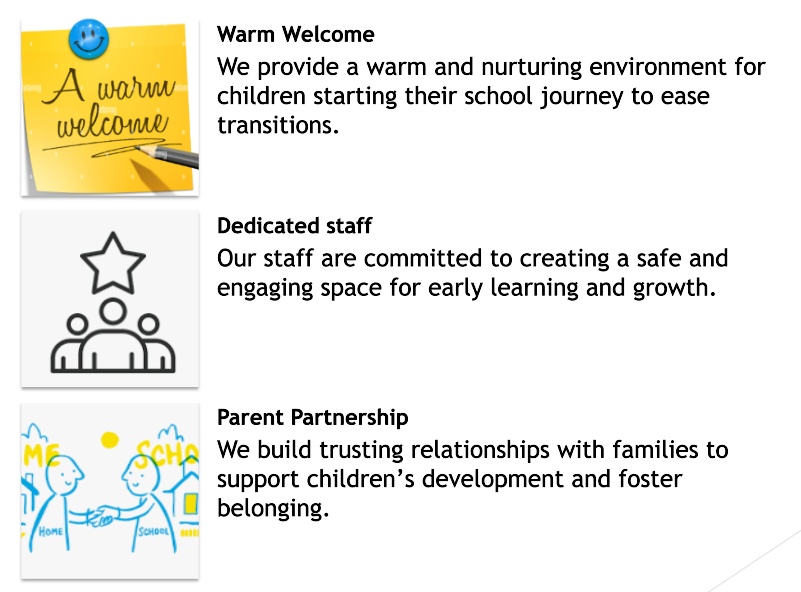
Admissions and Eligibility:
xxxx
Session Times:
Session times for 2-year-old children are as follows:
Morning Session: 8.40am - 11.40am
Afternoon Session: 12.20pm - 3.20pm
Places are allocated Monday-Friday for a Morning or an Afternoon session.
Our Nursery Space:
We have a beautiful, welcoming nursery space for our 2-year-old children to learn. In our separate Nursery space, our 2-year-olds learn and play alongside our 3-and-4 year-olds in a nurturing and stimulating environment designed for exploration and opportunities to explore all areas of the EYFS curriculum.
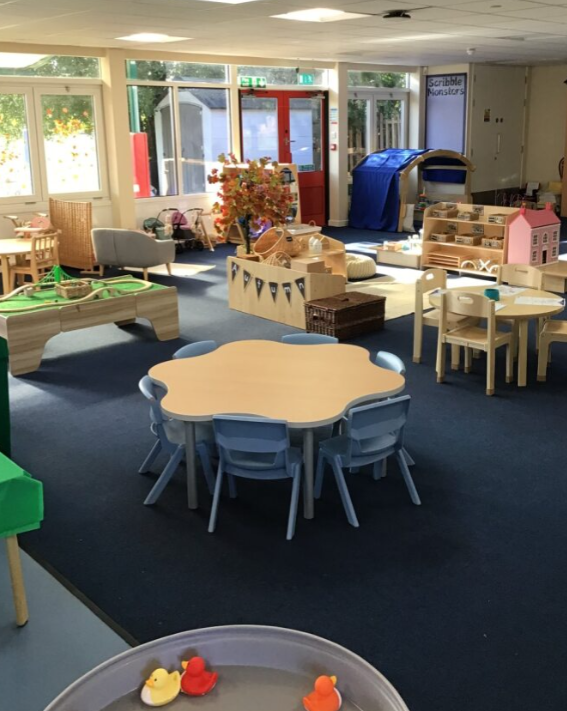
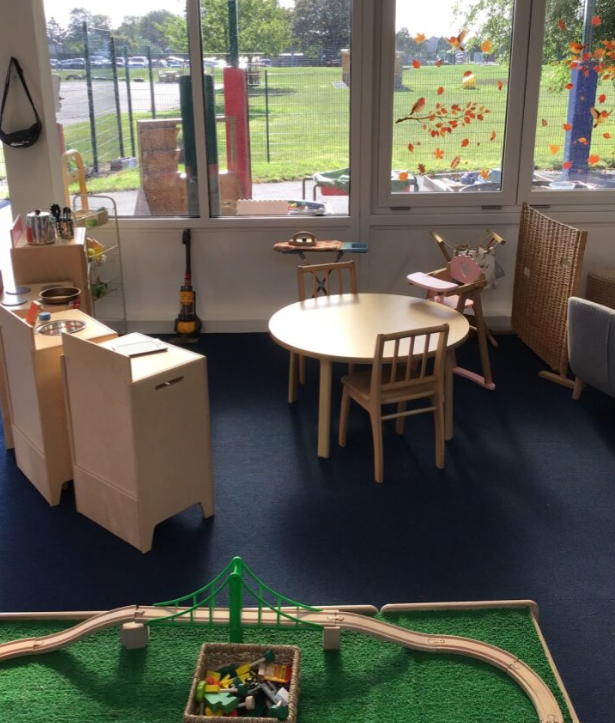
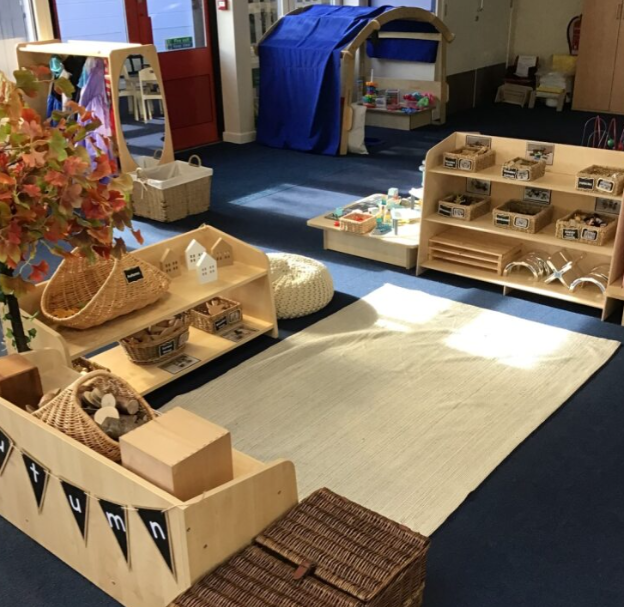
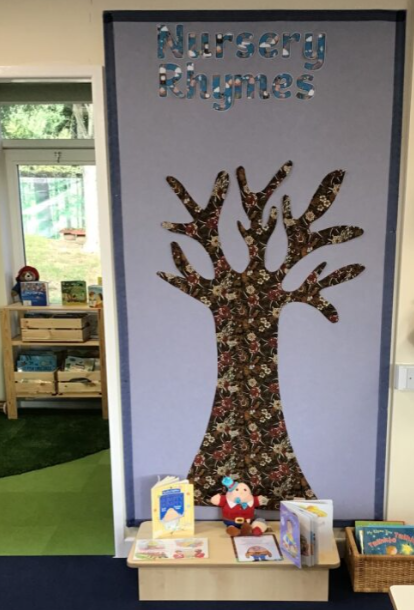
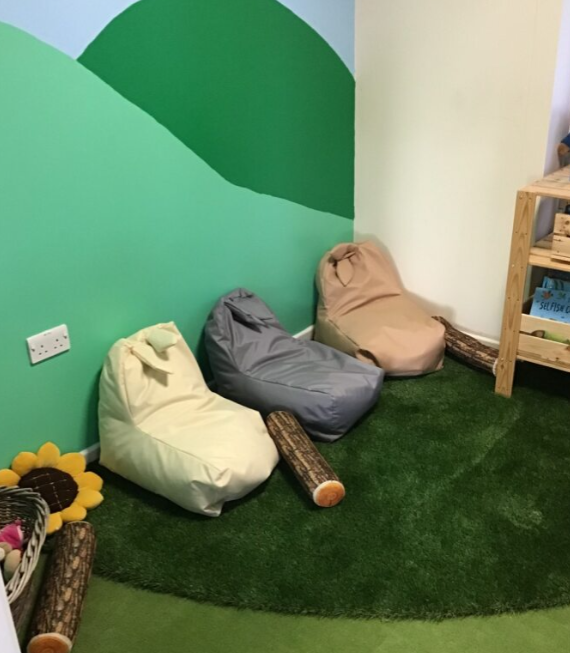
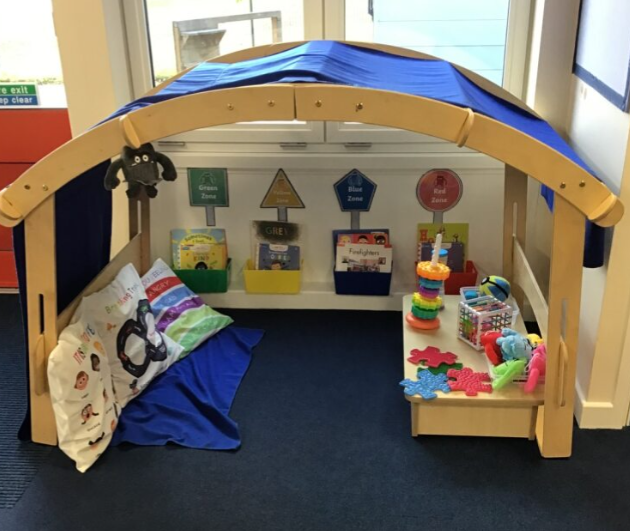
Key Routines:
The supervised snack in nursery is a key learning opportunity. A chance for the children to use their communication and language skills, socialise with each other and the staff, but also learn key sharing techniques as well as exploring new foods.
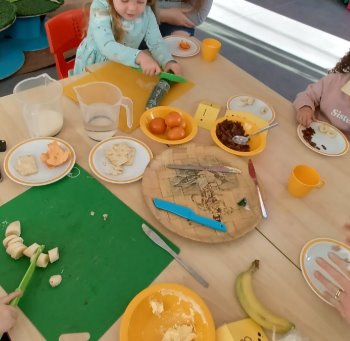
We are a Brushing Buddies School, brushing teeth 3 times a week, during the nursery session. All the children have their own toothbrush in school and are given a new one each half-term.

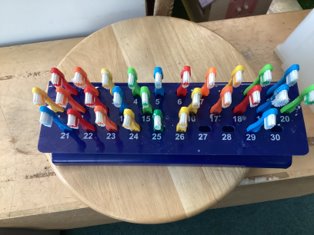
Once a week, the children will spend a full session in our Forest Schools area or in the outdoor classroom. We dig, climb, run and explore the natural environment around us, look after and take care of the school environment! For safety reasons, we ask children to be appropriately dressed and kindly request that Forest School's clothing is kept in a drawstring bag and left in school for the half-term.
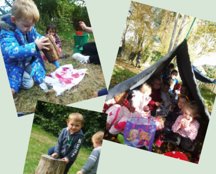
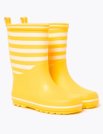
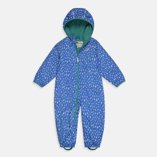
- To find out more about Forest Schools, visit our EYFS page.
Learning in our 2-year-old provision:
The EYFS Curriculum is delivered over a two-year cycle with cycle A (2025-2026) and cycle B (2026-2027).
A typical week of learning for our 2 year old children would look like the below:
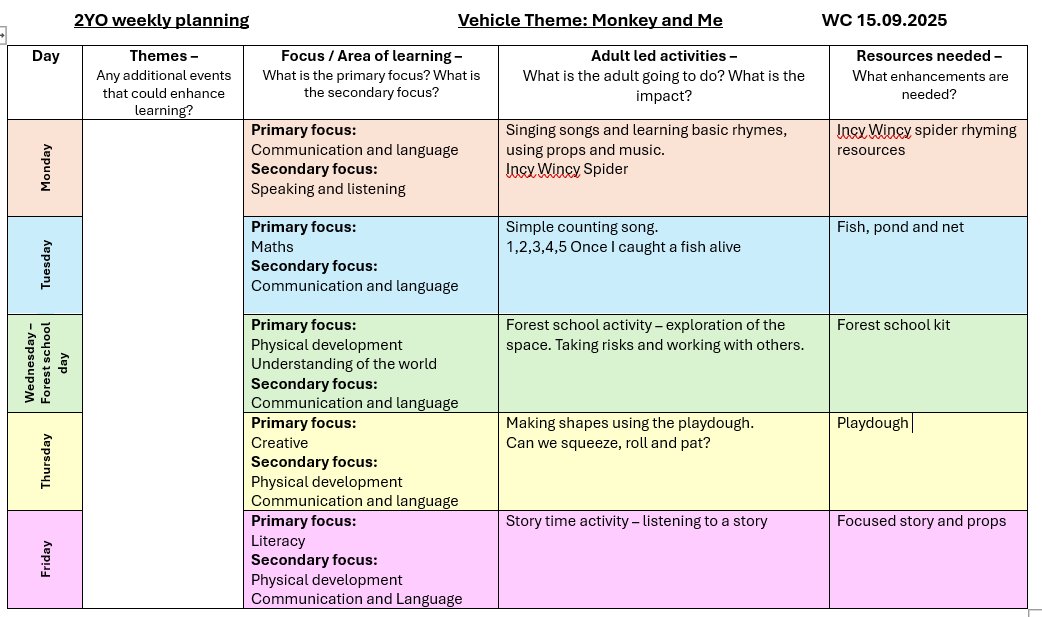
Cycle A
In the first half of the Autumn term, the children begin with a Vehicle titled Who am I? Who are you? This is where the children explore the key themes of similar and different. Children receive a visit from an alien planet where they must inform them all about themselves.
Moving onto the second part of the Autumn term, EYFS explore a Curriculum Vehicle known as ‘Belonging.’ This is where the children explore the key themes of now, then and family. Children will celebrate the traditions and cultures of the other children in their class with a cultural celebration party and a Bonfire party as part of Forest School.
After Christmas, the focus will move onto space with a Vehicle called ‘Look up!’ enabling the children to explore key themes such as light, dark, day and night. The children will meet the alien again from Autumn 1 and inform him about what they have discovered.
In Spring 2, EYFS will develop a knowledge of Farm to Fork with a focus on the themes of animals and food. This learning will conclude with a family BBQ where children will serve food.
Moving into the summer term, the Curriculum Vehicle will be based on ‘Journeys’ delivered through the themes of place, travel, hot and cold. The children will produce a vehicle to travel around on a journey.
In the final half of the summer term in EYFS, children will study a Vehicle called ‘Safe and Well’ allowing them to learn through the themes of healthy and life.
Learning in Nursery:
Have a closer look at our Nursery with a virtual tour: Click here
The seven areas of learning covered by the EYFS are Personal Social-Emotional Development, Physical Development, Communication and Language, Literacy, Maths, Understanding the World and Expressive Arts and design.
There are three prime areas of learning plus Literacy and Numeracy that are key to achieving a Good level of development at the end of the Foundation Stage.
The 3 PRIME AREAS:
Personal, Social and Emotional Development (PSED)
This area has three smaller sections. These are Self-Regulation, Managing Self and Building Relationships. This area focuses on children learning how to work, play, co-operatively with others and how they learn to understand, manage and regulate their own emotions in order to function as effective learners and citizens.
Communication and Language (C and L)
This area has two smaller sections. These cover Listening, Attention and Understanding and Speaking. These outcomes cover important aspects of language development and provide the foundations for literacy. Early Years at Holgate places a strong emphasis on children’s developing competence in Communication and Language with a focus on ensuring this area of embeded in Quality First Teaching across the EYFS. There are frequent planned opportunities for the children to engage in purposeful talk supported by adults, who support with using, understanding and developing vocabulary.
During Literacy sessions, there is always a strong emphasis in lessons planned in promoting communication and language by encouraging children to share their ideas and opinions and by saying out loud what they want to write prior to writing.
Physical Development (PD)
This area covers both fine and gross motor skill development. In order to achieve this as well as weekly PE sessions, children are encouraged to use the outdoor environment as much as possible and Forest school sessions are planned to support this. Weekly child-initiated and adult-led activities are planned to develop and support fine and gross motor development. We work hard in EYFS to develop children's skills for writing and use of tools effectively. We also do lots of work around healthy eating and looking after ourselves.
The SPECIFIC AREAS:
Maths
Maths is split into Number and Numerical Patterns learning. Maths is taught on a daily basis at Holgate in both whole class session and during small group activities. Maths is also intrinsic to daily continuous provision and enhanced through opportunities to explore numerical patterns, relationships between numbers and rhyme that embeds numerical order and place value.
Literacy
Literacy learning is split into Comprehension, Word Reading and Writing. Literacy is taught on a daily basis at Holgate during Phonics sessions and in specific Reading sessions. Children have regular opportunity to explore and understand a range of different purposes for writing and are challenged to create their own stories and adventures through both written, drama and spoken activities. Children are read with individually on a regular basis to enable them to learn and practise strategies taught. Phonics plays a big part in this area and the ability to blend for reading and segment for spelling are skills that are taught daily in the Foundation Stage at Holgate Primary and Nursery School.
Phonics – Phonics is taught daily in EYFS using the Monster Phonics scheme systematically to ensure that children make good progress and secure good early reading and writing skills during their time in the Foundation Stage.
Understanding the World
This covers the subjects Geography, Science, DT, History, RE and Computing. This is a major area of learning and enquiry focusing on children’s developing knowledge and understanding of their environment, other people and features of the natural and man-made world.
Understanding the World is split into:
* Past and Present
* People, Culture and Communities
* The Natural World
Weekly Forest School activities provide an opportunity for children to explore, understand and care for their local environment and understand how it differs from the wider world. Opportunity within continuous and enhanced provision is provided for children to investigate and understand natural objects and develop scientific curiosity and explanation.
Key vocabulary and skills are taught during teacher led sessions and provide children with the strategies to develop their own natural curiosity.
Our Talking Points Curriculum linked to PSHE also supports the children in understanding cultural and community differences and supports the children in EYFS in developing respect and understanding of the range of people who live in the world around them.
Expressive Arts and Design
This covers art, music, and drama. To ensure a broad range of experiences small group sessions and continuous and enhanced provision activities are planned to teach and provide children with skills and opportunity to express themselves creatively in a variety of different ways. These sessions and opportunities enable the children to develop key knowledge and skills when creating with materials and to develop their ability to expressive themselves and to be imaginative.
It is important to make sure your child remains safe online - look through our guide for ways to support your child's online safety.


